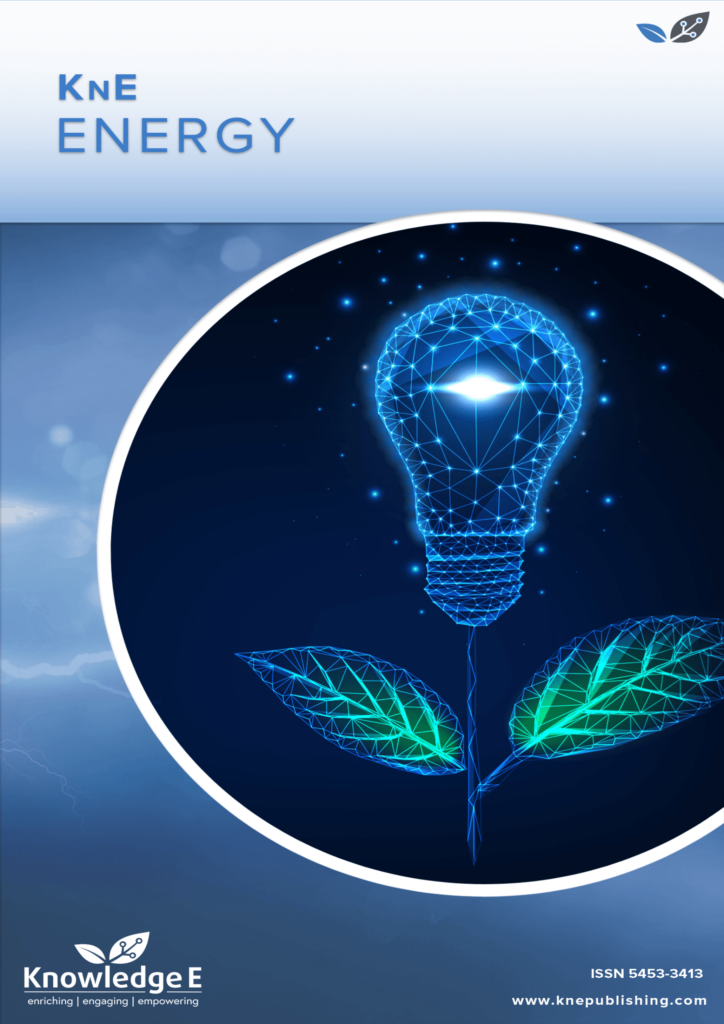
KnE Energy
ISSN: 2413-5453
The latest conference proceedings on energy science, applications and resources
Specific Absorption Rate of Fractal-like Aggregates of Magnetic Nanopaticles
Published date:Apr 17 2018
Journal Title: KnE Energy
Issue title: The 2nd International Symposium "Physics, Engineering and Technologies for Biomedicine"
Pages:433–440
Authors:
Abstract:
A specific absorption rate of fractal-like assemblies of iron oxide nanoparticles in alternating magnetic field has been calculated using stochastic Landau-Lifshitz equation which simultaneously takes into account both the presence of thermal fluctuations of the nanoparticle magnetic moments, and strong magneto-dipole interaction between the nanoparticles of the clusters. No appreciable difference in the magnetic properties of various types of fractal clusters has been revealed. It is also found that the specific absorption rate of dilute assemblies of fractal clusters shows only weak dependence on the number of the nanoparticles within the clusters.
Keywords: Magnetic nanoparticles, Fractal clusters, Magneto- dipole interaction, Low frequency hysteresis loops
References:
[1] E. A. Périgo, G. Hemery, O. Sandre, D. Ortega, E. Garaio, F. Plazaola, and F. J. Teran. “Fundamentals and advances in magnetic hyperthermia,” Applied Physics Review. vol. 2, p. 041302, 2015.
[2] S. Dutz and R. Hergt, “Magnetic nanoparticle heating and heat transfer on a microscale: Basic principles, realities and physical limitations of hyperthermia for tumour therapy,” Int. J. Hyperthermia vol. 29, pp. 790-800, 2013.
[3] B. Sanz, M. P. Calatayud, E. D. Biasi, E. Lima Jr., M. V. Mansilla, R. D. Zysler, M. R. Ibarra, and G. F. Goya, “In silico before in vivo: how to predict the heating efficiency of magnetic nanoparticles within the intracellular space,” Sci. Report, vol. 6, p. 38733 2016.
[4] M. L. Etheridge, K. R. Hurley, J. Zhang, S. Jeon, H. L. Ring, C. Hogan, C. L. Haynes, M. Garwood, and J. C. Bischof, “Accounting for biological aggregation in heating and imaging of magnetic nanoparticles,” Technology, vol. 2, pp. 214 – 228, 2014.
[5] S. R. Forrest and T. A. Witten Jr., “Long-range correlations in smoke-particle aggregates,” J. Phys. A: Math. Gen. vol. 12, pp. L109 - L117. 1979.
[6] N. A. Usov. O.N. Serebryakova, and V.P. Tarasov, “Interaction effects in assembly of magnetic nanoparticles,” Nanoscale Res. Lett. vol. 12, p. 489, 2017.
[7] A. V. Filippov, M. Zurita, and D. E. Rosner, “Fractal-like aggregates: relation between morphology and physical properties,” Colloid Interface Sci. vol. 229, pp. 261-273,2000.
[8] W. F. Brown Jr., “Thermal fluctuations of a single-domain particle,” Phys. Rev. vol. 130 pp. 1677-1686, 1963.
[9] J. L. Garcia-Palacios and F. J. Lazaro, “Langevin-dynamics study of the dynamical properties of small magnetic particles,” Phys. Rev. B, vol. 58, pp. 14937-14958, 1998.
[10] W. Scholz, T. Schrefl, and J. Fidler, “Micromagnetic simulation of thermally activated switching in fine particles,” J. Magn. Magn. Mater., vol. 233, pp. 296-304, 2001.
[11] W.T. Coffey, Yu.P. Kalmykov, and J.T. Waldron, The Langevin Equation, 2